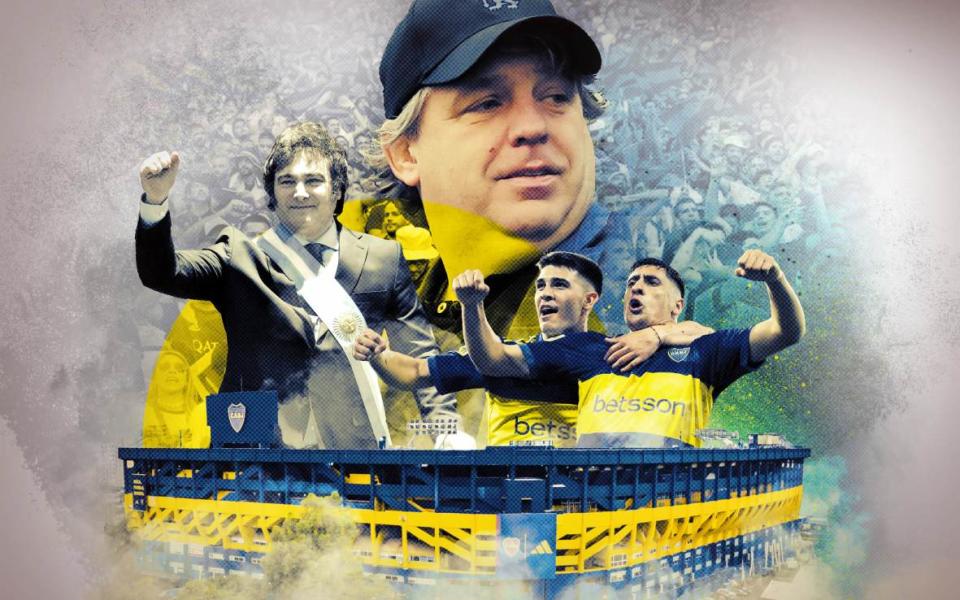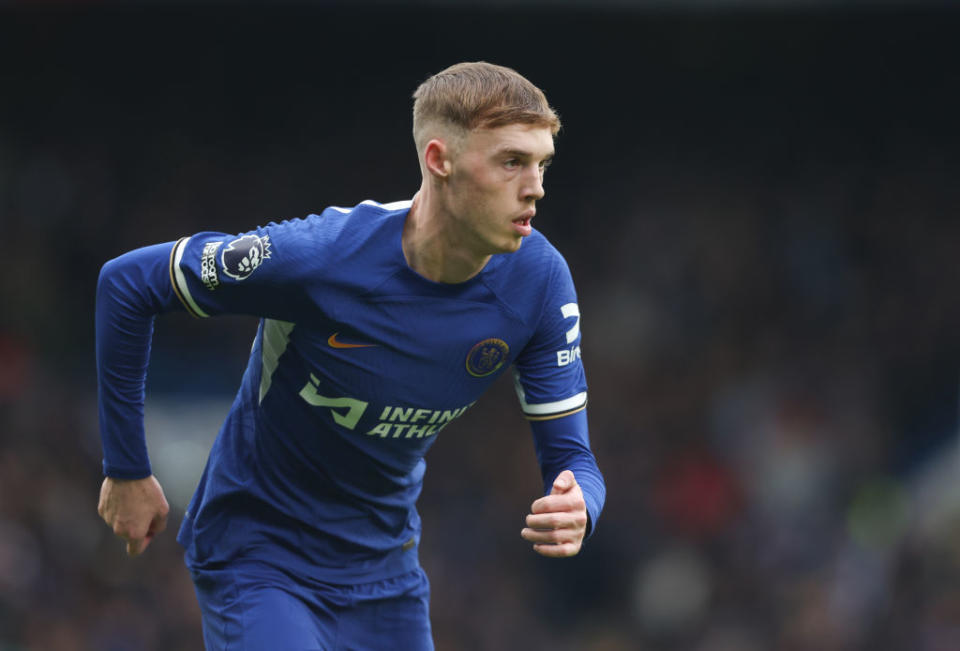Why Chelsea owners ‘must have clear vision’ if they buy Argentinian club

In Argentina, no sector is free from the war on red tape. Under the new presidency of the ultra-libertarian Javier Milei, who is bulldozing much of the country’s legal system to usher in private investment, football clubs’ fan-owned status is at risk from the state.
One month into office, Milei has announced monster-sized decrees which would radically change laws on sectors including retail and healthcare to encourage free competition.
Among them are relaxation of laws governing who can own football clubs, which Milei declared had already flushed out interest from Chelsea’s owners, led by Todd Boehly, in acquiring clubs including Boca Juniors, Racing, Newell’s Old Boys, Lanús and Estudiantes.
“I am a fan of Boca,” Milei said this month, “and if investment groups come to Boca and invest a fortune, and that means Boca always wins and River are not able to win a single game, the question is ‘where do I sign?’.”
The changes would allow Argentina’s football clubs to shift ownership from club members known as “socios” to private investors. The vast rule changes also put pressure on the national football federation, the AFA, to change its own statutes preventing privately-held stakes.
Argentinian football has been especially impacted by the country’s economic woes, with its clubs struggling to keep up with their Brazilian counterparts in continental competitions. Five teams were also recently sanctioned by Fifa after failing to comply with financial rules.
But the government’s proposals have faced significant backlash, with all those clubs linked to Chelsea reaffirming commitment to their nonprofit model.
“Loyal to our origins, respectful of the clear principles defended over nearly 120 years, Boca Juniors confirms its status as a nonprofit civil association,” the club said in a statement.
Former Boca president Mauricio Macri, who also served as the country’s premier between 2015 and 2019, has argued in favour of deregulating football club ownership for more than 20 years. His campaign in 2001 fell through due to significant opposition from other clubs and fans.
Just last year, Independiente’s fan protest against club directors featured a banner stating: “If you privatise us, we will come for your families.”
Sports lawyer Simon Leaf says potential investors face an uphill battle in trying to win the hearts and minds of fans in South America.
“From experience advising other clients, there are often significant legal, regulatory and reputational challenges when it comes to investing and then operating clubs in South America,” Leaf, a partner at Mishcon de Reya, told City A.M.
“Several clubs in that region are currently, or have historically been, owned by their fans, which may mean that new investors coming in may struggle to fully implement their plans.

“It is arguably more common for disputes between clubs, players and agents to arise in these jurisdictions, which not only can impact performance both on and off the field but can also lead to uncertain outcomes and difficulties trying to enforce judgments from a practical perspective when compared to the equivalent legal measures that could be taken in the big leagues across Europe.”
Amid the rise of multi-club ownership models such as City Football Group and 777 Partners, Chelsea and Paris Saint-Germain’s big-spending owners have expanded their own portfolios with purchases of stakes in French side Strasbourg and Portugal’s SC Braga.
Sports agency chief executive Mark Cowan says the advantages of multi-club ownership go beyond talent development and the chance to win matches.
“It not only allows benefits on the pitch, but for the clubs to grow as a brand thanks to increased exposure and smoother internal operations,” Cowan, of Entourage Sport and Entertainment, told City A.M.
“The synchronised operations will certainly allow advantages for day to day club management that they would hope can improve the chances of creating a winning formula.”
While City Football Group’s acquisitions of Club Bolivar in Bolivia and EC Bahia in Brazil have shown signs of promise with some fan excitement, 777 Partners and John Textor’s respective ownership of top-flight Brazilian clubs Vasco da Gama and Botafogo have received scrutiny from supporters seeking greater transparency.
Cowan says the talent-rich continent is especially difficult for investors to access.
“We know that while there are many benefits from a business perspective, the risks of aligning clubs can carry consequences around fan engagement and understanding clubs’ history and cultures,” Cowan said.
“There are also various jurisdictions and laws that don’t always allow for an easy flow from club to club. Therefore, for an expansion like this to work, the owners must have an extremely clear vision and strategy that enhances both sides while making it easy for fans of each club to see and feel the direct benefits.”
Should Milei’s cataclysmic changes to football in Argentina come to settle, an opportunity may arise for Chelsea’s owners to swoop in and buy a club. But venturing into a market where public reaction is never certain could prove to be too much of a risk even for them.

 Yahoo Finance
Yahoo Finance 